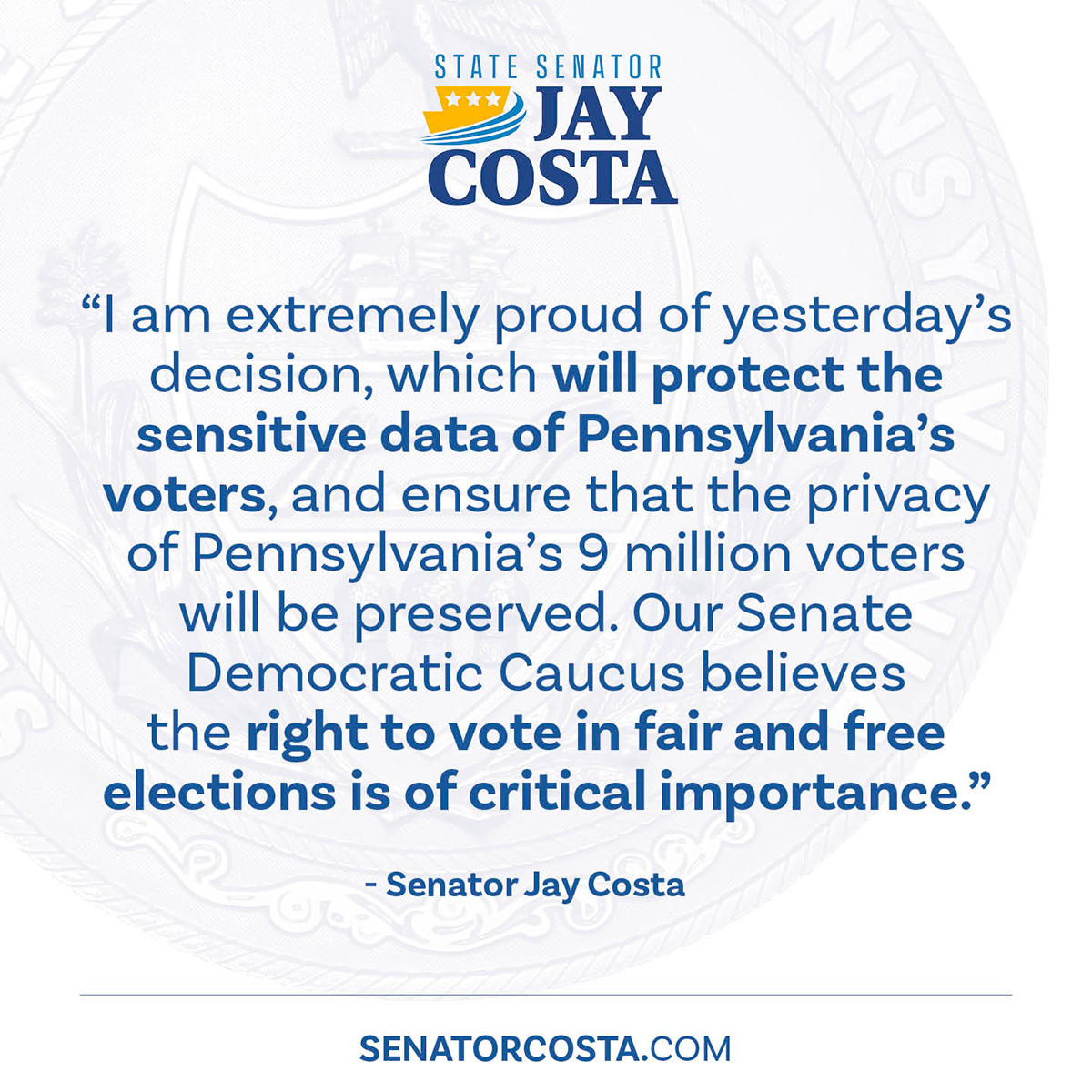PITTSBURGH, PA – February 22, 2024 – Yesterday, the Pennsylvania Supreme Court issued a per curium order, dismissing the appeals in Pa. Senate Intergovernmental Operations Committee v PA. Department of State.
 This action was initiated by the Democratic members of the Intergovernmental Operations Committee (Senators A. Williams, Hughes, Santarsiero and Costa and later joined by current members Tartaglione and Saval) when Sen. Dush and Republican members of the committee voted to issue a subpoena to gain access to the registration and voting information of more than 9 million voters in the Commonwealth. That suit was joined, in separate actions filed by both the Department of State and concerned voters in a private capacity including Sen. Haywood.
This action was initiated by the Democratic members of the Intergovernmental Operations Committee (Senators A. Williams, Hughes, Santarsiero and Costa and later joined by current members Tartaglione and Saval) when Sen. Dush and Republican members of the committee voted to issue a subpoena to gain access to the registration and voting information of more than 9 million voters in the Commonwealth. That suit was joined, in separate actions filed by both the Department of State and concerned voters in a private capacity including Sen. Haywood.
In response, Senate Democratic Leader Jay Costa issues the following statement:
“I am extremely proud of yesterday’s decision, which will protect the sensitive data of Pennsylvania’s voters, and ensure that the privacy of Pennsylvania’s 9 million voters will be preserved,” said Senator Costa. “The action by my colleagues in the Senate Democratic caucus to go to court ultimately blocked an inappropriate and misguided subpoena issued by the Republican committee chair, Sen. Dush, who sought to obtain the confidential information of Pennsylvania voters and then pass it on to a partisan outside vendor under the guise of conducting a trumped-up election audit. The Supreme Court has ruled that the subpoena is no longer effective and, in the process, has vacated a lower court ruling that would have made it more difficult for voters to assert their constitutional rights to privacy.
“Our Senate Democratic Caucus believes the right to vote in fair and free elections is of critical importance, and we are proud to stand up for all voters in ensuring that their private information is secure, and they have confidence in the integrity of our elections. I look forward to continuing to protect our freedom to choose our leaders, as well as expanding access to the ballot while fiercely protecting our sensitive data.”
The PA Supreme Court dismissed the appeal as moot, but also vacated Judge Leavitt’s order which provided, in part provided that the subpoena could not be challenged until the Senate sought to enforce it. The appeal filed by the Pennsylvania Senate Democratic caucus challenged that notion as important privacy rights as well as a lack of statutory authority to request the information by subpoena required resolution.
###

